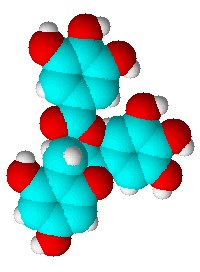 Researchers from Slovenia have used spectroscopy to home in on the active site of an essential bacterial enzyme, DNA gyrase. They say they now understand more clearly how a compound found in green tea, EGCG, which is a health-boosting antioxidant, works to kill bacteria.
Researchers from Slovenia have used spectroscopy to home in on the active site of an essential bacterial enzyme, DNA gyrase. They say they now understand more clearly how a compound found in green tea, EGCG, which is a health-boosting antioxidant, works to kill bacteria.
The findings should allow researchers to design new, synthetic versions of EGCG that improve on its activity without side effects.
“I think that this direction is worth pursuing,” team leader Roman Jerala told me, “EGCG besides being unpatentable is not very stable in the body and has low bioavailability but this could be improved.” In their paper, the researchers discuss several possible research directions, however Jerala concedes that he and his colleagues lack the synthetic capabilities to pursue them. “We could only go in this direction with support from other labs,” he says, “Hopefully pharmaceutical companies will consider it.”
More…